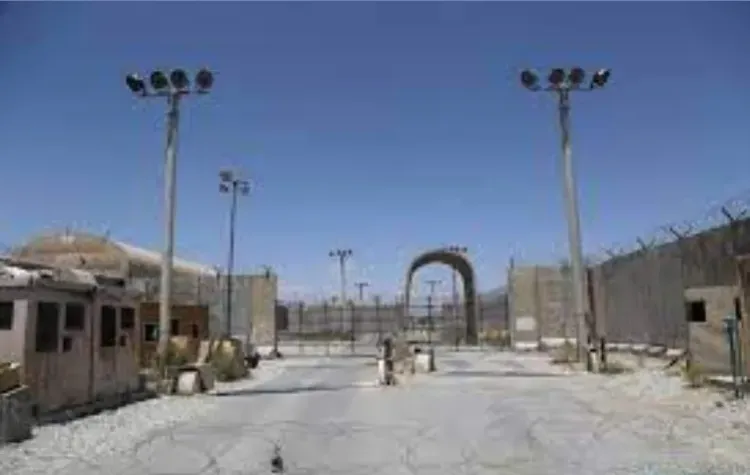Did Trump Truly Overlook Afghan Sentiments Regarding Bagram Airbase?

Synopsis
Key Takeaways
- Afghans reject foreign military presence.
- Bagram airbase was a key military hub.
- Peace is a fundamental desire among Afghans.
- Conflict has led to significant socio-economic challenges.
- International cooperation is vital for Afghanistan's future.
Kabul, Sep 20 (NationPress) A notable Afghan official has criticized the recent statements made by US President Donald Trump concerning the potential recapture of Bagram airbase in postwar Afghanistan. According to the state-run Radio and Television of Afghanistan (RTA), the official emphasized that Afghans have consistently rejected foreign military presence in their nation.
"Afghans have never embraced foreign military presence in their homeland throughout history. It is crucial for Afghanistan and America to engage in economic and political relations grounded in mutual respect and shared interests," stated Jalali, a senior diplomat from the foreign ministry, as reported by Xinhua news agency.
Trump, who has been critical of his predecessor Joe Biden for relinquishing Bagram airbase during the US withdrawal in August 2021, remarked to reporters in London on Thursday, "We want to retake it."
Located 50 km north of Kabul, the Bagram airbase was the primary military hub for US forces in Afghanistan throughout a two-decade military presence by US-led coalition forces, culminating in August 2021 and leading to the downfall of the western-supported forces and the rise of the current Afghan regime.
As the world gears up to observe the International Day of Peace on September 21, Afghans, who have endured over four decades of conflict, express a singular aspiration: lasting peace.
According to Afghans, decades of warfare and civil strife have left their nation undeveloped and impoverished.
"My desire for Afghanistan is to achieve enduring peace and security, allowing refugees to return and contribute to rebuilding the country," shared Abdul Qadus Rahmani, a baker in Kabul and father of six.
Rahmani, 45, noted that even his daily bread sales are indicative of the nation's fragile stability. "In times of conflict, I sell 200 to 300 pieces of bread daily. In a peaceful environment, I could sell between 1,000 and 1,500, which would significantly improve my income."
As the International Day of Peace approaches, ordinary Afghans view tranquility not merely as an abstract concept, but as a fundamental requirement for work, education, and dignity — a testament that even after enduring years of hardship, the simple hope for peace persists.










